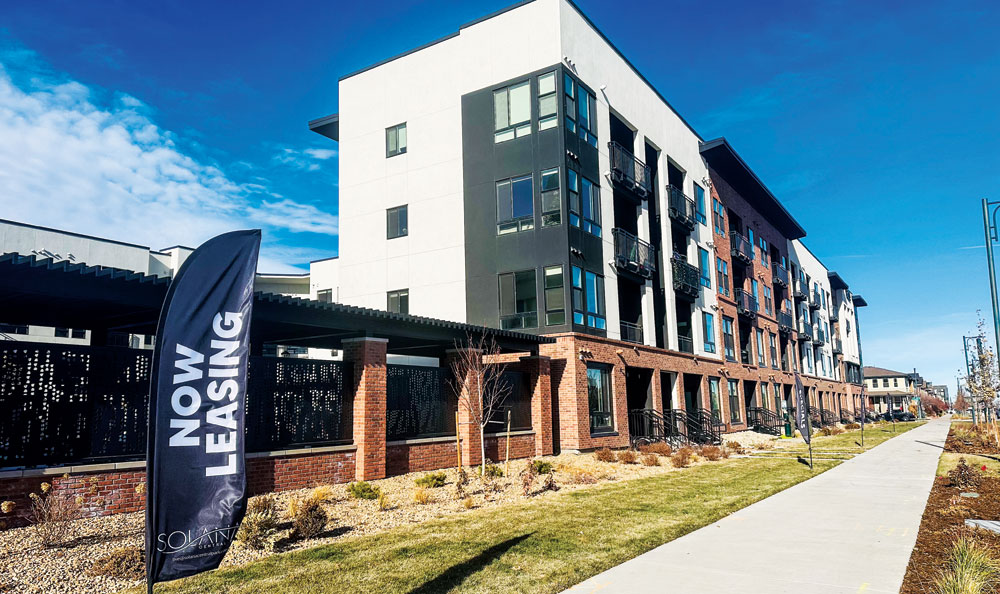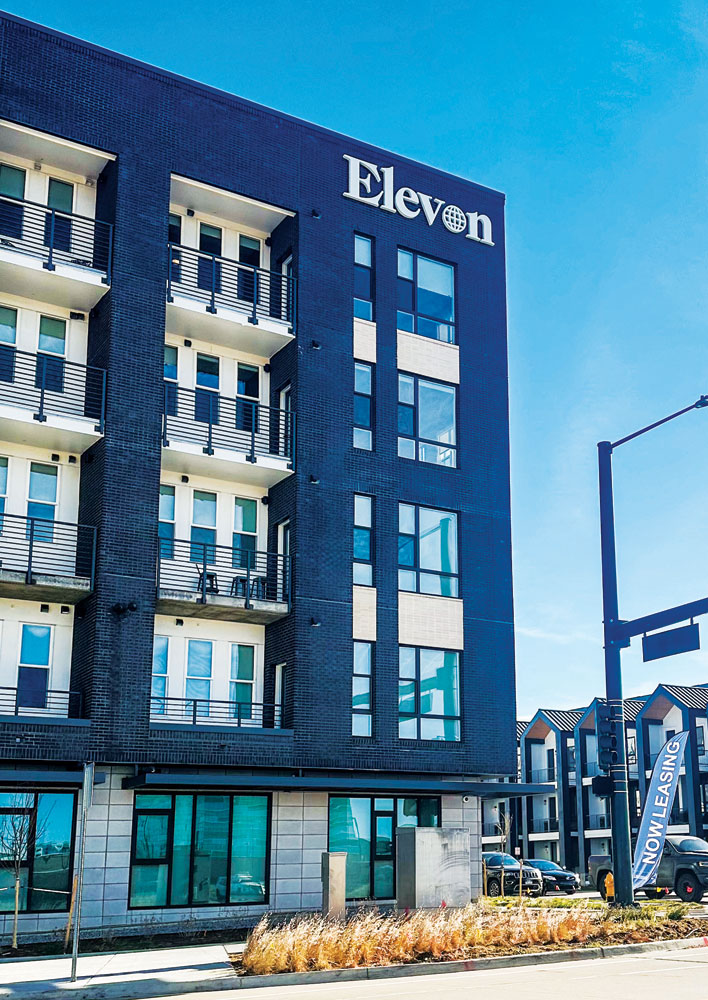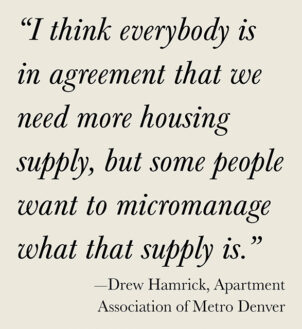
Solana Central Park is a 307-unit luxury apartment building that recently opened near the intersection of Central Park and Martin Luther King Blvds. It features an outdoor pool, pet spa, fitness center, and co-working lounge.

The Elevon, near the Central Park RTD Station, has 301 units, a rooftop pool, co-working space, and bike repair facilities.
If it seems that new apartment buildings are opening all over the Central Park neighborhood, you’re not wrong. Denver is undergoing a surge of multi-family housing construction. During the first nine months of 2024, more than 9,800 new rental units became available in Denver—nearly double the number that were built in all of 2023.
According to Drew Hamrick with the Apartment Association of Metro Denver, the boom is the result of a huge number of projects that were started in 2020 when interest rates were low. “But there’s this lag. From the time someone submits permits to the time it is ready for occupancy, it’s about three-and-a-half years, which is problematic for a number of reasons, primarily because demand changes faster than supply does,” says Hamrick.
The sudden upswing in multi-family housing is good news for renters, since it has meant that rent prices have remained mostly flat, even dipping a bit in the fourth quarter of 2024. The median rent for apartments in Denver was $1,616 in December, according to Zillow. The website Apartments.com shows that many new apartment buildings are offering big incentives to attract renters, such as one or two months free rent or free parking.
Many of the new apartment buildings are opening along Central Park Blvd., which has caused some residents to worry about increasing traffic in the area. Liz Stalnaker is president of Central Park United Neighbors (CPUN) and has been monitoring the complaints that have been coming in. “Our Safe Streets Committee meets quarterly with the Department of Transportation and Infrastructure to talk about improving safety. So this is something we’re paying close attention to.”
She says the impact on schools has also been a concern. “We stay in touch with the school board. They are monitoring this, but according to their calculations, there’s no need for new schools at this time.”
Although the number of apartment units is on the rise, it may not be enough to meet the increasing population growth. According to a recent report by the Denver Regional Council of Governments (DRCOG), more than 511,000 new units of housing will need to be built by 2050 to meet the demand in the Denver metro area. Just over 300,000 of the units need to be affordable for households earning 60 percent or less of median income.
 Adam Lyons is the development director for Denver’s Department of Housing Stability. He says the City has been making reforms to speed up the development of affordable housing. “On the permitting side, we’ve established an affordable housing review team that gets projects through entitlements and permits a lot quicker than market-rate developments,” says Lyons. “Just anything we can do to reduce barriers for developers to get the projects built.”
Adam Lyons is the development director for Denver’s Department of Housing Stability. He says the City has been making reforms to speed up the development of affordable housing. “On the permitting side, we’ve established an affordable housing review team that gets projects through entitlements and permits a lot quicker than market-rate developments,” says Lyons. “Just anything we can do to reduce barriers for developers to get the projects built.”
CPUN’s Stalnaker is encouraged by several new affordable housing projects that have recently opened or are in the works in the north end of Central Park, including Northfield Flats. She says members of CPUN want to ensure that the neighborhood is inclusive and diverse. “Many of us have been frustrated that it has taken so long for affordable units to be built.”
He says that in six months or so, the current construction boom is going to come to a halt and that will likely lead to higher rental rates. “I think everybody is in agreement that we need more housing supply, but some people want to micromanage what that supply is,” says Hamrick. “This is the perfect example of the City overreaching.”
For his part, Lyons says the City can’t focus only on new construction when it comes to meeting the need for affordable housing. “I don’t know if Denver can ever build its way out of the housing crisis. I think a large part of meeting the need is preserving the existing affordable housing that we have—making sure that it’s sustainable in the long term.”
Front Porch photos by Christie Gosch



0 Comments